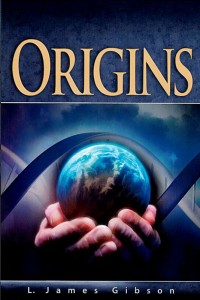Lesson 9 *February 23-March 1

Marriage: A Gift From Eden
Read for This week’s Study: Gen. 2:18-25, Mark 10:7-9, Eph. 5:22-25, Matt. 5:27-30,2 Cor. 3:18.
Memory Text: “And the Lord God said, ‘It is not good that the man should be alone; I will make him an help meet for him’ “ (Genesis 2:18).
Think of the blessings of a happy marriage and a loving home.
How fortunate are those who have such an experience!
Unfortunately, for too many people, marriage has been an experience of mostly pain and anger rather than of joy and peace. This is not how it was intended or how it should be. The sad state of so many marriages is a powerful expression of the degradation that sin has brought to the human race.
“God celebrated the first marriage. Thus the institution has for its originator the Creator of the universe. ‘Marriage is honorable’ (Hebrews 13:4); it was one of the first gifts of God to man, and it is one of the two institutions that, after the Fall, Adam brought with him beyond the gates of Paradise. When the divine principles are recognized and obeyed in this relation, marriage is a blessing; it guards the purity and happiness of the race, it provides for man’s social needs, it elevates the physical, the intellectual, and the moral nature.”-Ellen G. White, Patriarch and Prophets, p. 46.
What a wonderful ideal. This week’s lesson looks at some of the principles behind it.
*Study this week’s lesson to prepare for Sabbath, March 2.
SUNDAY February 24
Lo Tov
Out of a primeval abyss God created our world through the supernatural power of His Word. All through the Creation account, everything was “good” until the work was completed, at which point everything the Lord had created was pronounced “very good” (Gen. 1:31).
In the midst of all this, however, one thing was lo tov, "not good.” Read Genesis 2:18. What was “not good,” and why? What are some of the implications of this text?
God had declared all aspects of the Creation “good” up to the time that He created Adam. At that point, Adam was the only human. Although he was made in the image of God, in his aloneness, he could not reflect the full image of God, who exists in relationship with other parts of the Godhead. The Godhead, of course, is composed of the Father, the Son, and the Holy Spirit. Thus, Adam needed someone like himself with whom he could form a relationship of mutual love and cooperation, reflecting the loving relationship exemplified within the Godhead.
Read Genesis 2:19-21. After what act does God cause Adam to sleep and then, from his flesh, create a wife? How might the previous act be related to God’s creation of a wife for Adam?
Perhaps the key here is found in the last phrase of verse 20. As he named the animals, Adam must have noticed that they came in pairs, male and female, unlike himself, who was a singular creation. We can be sure that the Lord all along intended for Adam to have a wife. Perhaps the Lord intended to create a longing in Adam, the sense that something was missing in his own existence, which would make him that much more appreciative of the gift that the Lord was going to give him in a wife.
Consider the contrast between the “good” of the rest of the Creation, and the declaration of “not good” in regard to Adam’s solitude. What does this indicate about the value of relationships? What can you do to help to strengthen whatever valuable relationships you are now in?
MONDAY February 25
A Companion for Adam
Genesis 2:20, in which Adam names the animals, helps to reveal the great gap between humans and other earthly creatures. There was no animal that was comparable to Adam. Not even among the apes was there any creature like Adam, because Adam was not like an ape. This is an important point for us to remember because so many in our society promote the idea that humans are nothing more than advanced apes. We are not apes, and an ape was no more suitable as a companion for Adam than it would be for one of us.
Read Genesis 2:21, 22. What significance is found in the method by which God created a companion for Adam?
As God had personally crafted Adam’s body from the dust of the ground, so He personally crafted Eve’s body, using one of Adam’s ribs. God did not need Adam’s rib to create Eve; He could have created her as He had created Adam or even spoken her into existence.
But God had a reason for forming Eve out of one of Adam’s ribs. If the two had been created completely separately, it could indicate that by nature they were completely independent individuals. But the sharing of flesh in both persons indicates that the two were to be united and were intended to be “one flesh.”
After being created, Eve was brought to Adam to be his helper (vs. 18). She was made from Adam (vs. 22) and given to Adam (vs. 22). The process by which God created Eve showed clearly that God could provide any companion that Adam needed. This point became important later when Adam faced the temptation of whether to join Eve in the eating of the fruit or to trust God to take care of the situation. Adam had ample reason to believe that God could take care of him, and this made his sin the more grievous.
Read Genesis 2:23. What was Adam’s response to Eve?
Adam was so excited when he saw Eve that he sang out in poetry. This is the first poem in the Bible and reflects Adam’s regard for his wife and the closeness of their relationship. She was to be his equal, another aspect of Creation that was damaged by the Fall.